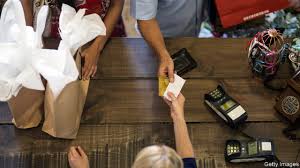Governments use receipt lotteries to boost tax compliance

PEOPLE PAY taxes because governments say they must and society says they should. But what if tax compliance became fun? Governments around the world are encouraging consumers to ask for receipts by turning them into lottery tickets. Taiwan was an early experimenter, in 1951. The past decade has seen a flurry of such schemes: China, the Czech Republic, Lithuania, Portugal, Romania and Slovakia all now have them. Latvia will launch one later this year.
The aim is to make it harder for retail businesses to evade taxes. Worldwide, 20-35% of government revenue comes from value-added taxes (VAT) or similar levies on consumption. But as much as a third of what should be collected is thought to be forfeited because businesses under-report revenues. The problem is not business-to-business transactions; firms can usually reclaim any VAT they pay if they keep proper records. But when selling direct to consumers, it is tempting to accept cash without recording the sale. A tax-dodging retailer can undercut law-abiding rivals or pocket a higher margin.
The idea of a receipt-lottery scheme is to give customers an incentive to ask for receipts, thereby forcing sales to be recorded and taxed. Receipts might be printed with a code that can then be submitted into a central draw. Prizes range from decent sums of money to cars and holidays. Digital technology means schemes are cheap to run, even allowing for the cost of prizes.
Few countries have studied schemes’ impact. An exception is Slovakia, which has run a lottery scheme since 2013 as one of a range of attempts to reduce its unusually high rate of VAT evasion. In 2014 the finance ministry estimated that the lottery had contributed a very modest €8m ($ 11m) in annual revenues. But the Brazilian state of São Paulo is so sure its lottery increases tax collection that it grants citizens who give their taxpayer number when making a purchase not just a chance to win a prize, but a rebate of 30% of the sales taxes they have paid.
For governments trying to up the tax take, consumption taxes have appeal. They are less noticeable than income taxes or cuts to public services. But higher rates fall most heavily on poor people, who tend to spend a bigger share of their income. Receipt lotteries allow governments to raise revenue without raising rates. As a bonus, they also increase awareness of tax evasion and encourage citizens to look out for tax cheats.
According to a report for the European Commission in 2017, of the ten European countries with the biggest shortfalls in collection of VAT in 2014-15, nine have, or are setting up, a receipt-lottery scheme. (Italy is the exception.) Though a receipt lottery cannot end evasion on its own, says Jonas Fooken, a researcher at the University of Queensland, adding “a bit of magic” to mundane purchases can help.





